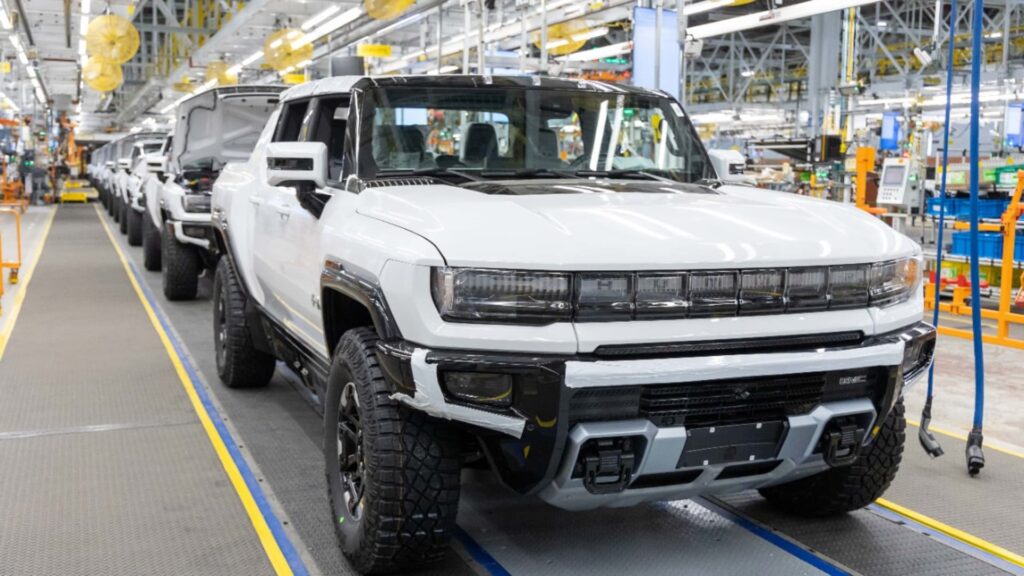In a significant development for the automotive industry, shares of major Detroit automakers experienced an uptick following reports that President Donald Trump is contemplating substantial tariff relief for domestic vehicle production. This potential policy change has sparked optimism for companies like General Motors, Ford, and Stellantis. Market reactions have exemplified this renewed confidence, as various automaker stock prices saw notable increases due to the anticipated regulatory adjustments.
| Article Subheadings |
|---|
| 1) Market Response to Tariff Relief Reports |
| 2) Implications for Automakers |
| 3) Expected Changes to Tariffs |
| 4) Financial Impact on Major Companies |
| 5) Industry Lobbying and Future Outlook |
Market Response to Tariff Relief Reports
Shares for prominent Detroit automakers such as General Motors, Ford, and Stellantis saw a positive rally on Friday following an afternoon report about potential tariff relief from the Trump administration. This news prompted a notable shift in stock prices, with increases ranging from 1% to 4% for these companies. Specifically, Ford and GM experienced gains, impacting investor sentiment positively.
The increase in stock prices can be attributed to a Reuters report which indicated that U.S. lawmakers, particularly Republican Senator Bernie Moreno of Ohio, suggested that tariff adjustments could lessen production costs for automobile manufacturers. “The signal to the car companies around the world is, look, you have final assembly in the U.S.: we’re going to reward you,” said Moreno during an interview, reflecting the broader industry optimism regarding this potential policy change.
Implications for Automakers
The proposed tariff relief could have far-reaching implications for the automotive industry. Major manufacturers, including Tesla, Ford, and Honda, represent significant players in the U.S. market, which could benefit from reduced costs if tariffs are modified. Automakers have been under considerable financial strain due to existing tariffs of 25% on imported vehicles and parts, with many advocating for relief since such tariffs have substantially increased production costs, hindering profitability.
Moreno’s statements have sparked discussions about which companies will predominantly benefit from these changes. He emphasizes that firms with a high percentage of domestic assembly will be favored, thus encouraging companies to maintain or increase their production within the United States.
Expected Changes to Tariffs
The potential policy revisions hinted at by Moreno and others may encompass not only extending the current 3.75% tariff offset for an additional five years but also include U.S. engine manufacturing under this relief umbrella. This recommendation has raised hopes among automotive manufacturers, particularly since they have invested significantly in domestic production capabilities in anticipation of such measures.
Additionally, these changes could streamline the operational challenges that companies have faced regarding tariffs, potentially fostering a more favorable environment for innovation and expansion within the auto sector.
Financial Impact on Major Companies
The financial ramifications for the major automakers could be substantial if these tariff adjustments take place. For instance, Ford has stated that it anticipates facing $3 billion in tariff-related costs for the year, indicating that it expects to offset approximately $1 billion of that amount through various strategic measures. Meanwhile, GM has highlighted that it could face up to $5 billion in gross costs but might mitigate around 30% of that sum this fiscal year.
This anticipated alleviation of costs could provide these automakers with additional capital to invest in research and development, ultimately leading to advancements in electric vehicle technology and sustainable manufacturing practices.
Industry Lobbying and Future Outlook
The automotive industry has been vocal in its efforts to lobby for favorable legislation concerning tariffs, especially for vehicles manufactured in the U.S. and those imported from neighboring Canada and Mexico. This activism highlights the urgency and importance the sector places on maintaining competitiveness in an increasingly global automotive market.
As automakers prepare for upcoming negotiations, they are poised to leverage whatever relief measures are available to adapt to changing market conditions. The outlook remains optimistic, especially among manufacturers dedicated to maintaining their U.S. operations while responding to consumer demand for electric and hybrid vehicles.
| No. | Key Points |
|---|---|
| 1 | Potential tariff relief could significantly reduce costs for major automakers. |
| 2 | Stocks for Detroit automakers saw gains, reflecting market optimism about tariff changes. |
| 3 | Industry officials believe possible adjustments will incentivize U.S. manufacturing. |
| 4 | Ford anticipates significant tariff-related costs in 2023, expecting to mitigate part of it. |
| 5 | Automakers are lobbying for more aggressive tariff reforms to support domestic production. |
Summary
In conclusion, the discussions surrounding potential tariff relief present a critical juncture for the U.S. automotive industry. As major manufacturers collectively anticipate the positive financial impact of such changes, their joint efforts in lobbying for favorable policies highlight the industry’s commitment to maintaining competitiveness while fostering sustainable growth. The potential adjustments not only stand to benefit these companies financially but also could lead to a more robust domestic manufacturing landscape in the long term.
Frequently Asked Questions
Question: What is the current tariff rate on imported vehicles?
The current tariff rate on imported vehicles stands at 25%, which has significantly affected production costs for automakers operating in the U.S.
Question: How do tariffs impact automotive manufacturers?
Tariffs increase operational costs for manufacturers, potentially leading to higher vehicle prices for consumers and reduced profit margins for companies.
Question: What actions are automakers taking regarding tariffs?
Automakers are lobbying the Trump administration for tariff relief, particularly focusing on U.S.-produced vehicles, in order to lower costs and enhance competitiveness.
